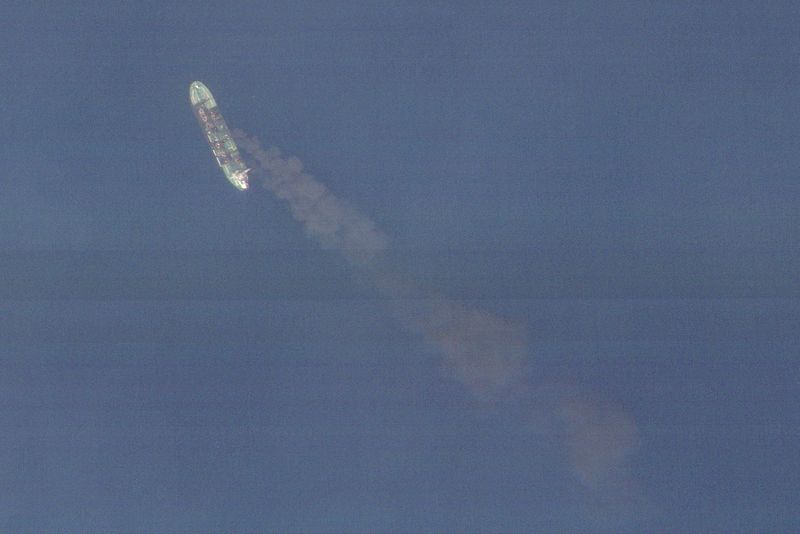
ATHENS (Reuters) – Experts will this week resume a risky operation to salvage the Sounion tanker which was attacked by Yemen’s Houthis in the Red Sea last month and still holds about one million barrels of crude oil, maritime sources said on Thursday.
The towing of the Greek-registered vessel – which was struck, lost power and caught fire on Aug. 21 – was paused after it was deemed unsafe by the companies initially involved in the project.
Officials have said the towing operation will be particularly delicate, given the full load and a host of other factors.
Any spill could be the largest from a ship in recorded history and could cause an environmental catastrophe in an area that is particularly dangerous to enter.
The Houthis – who say they are acting in solidarity with Palestinians caught up in the Israel-Gaza war – also detonated charges on the tanker after the attack, causing more fires, and it is unclear if any explosives are still active.
At least two tugboats owned by a Greek-based salvage company are already in the area and will deal with the towage, one of the sources said.
“There is an action plan in place and there is progress,” another source added. “The towing operation is expected to begin in the next two days.”
The ship’s crew has been evacuated. Greece has also been in touch with regional power Saudi Arabia to ask for assistance.
The Iran-aligned Houthi militants have said they would allow salvage teams to tow the ship to safety.

The EU’s naval mission in the Red Sea, Aspides, will protect the vessels involved in the towage and monitor the entire operation, an Aspides official reiterated on Thursday.
A French frigate and a Greek frigate participating in Aspides were already in the area, one of the sources said.
This post is originally published on INVESTING.


